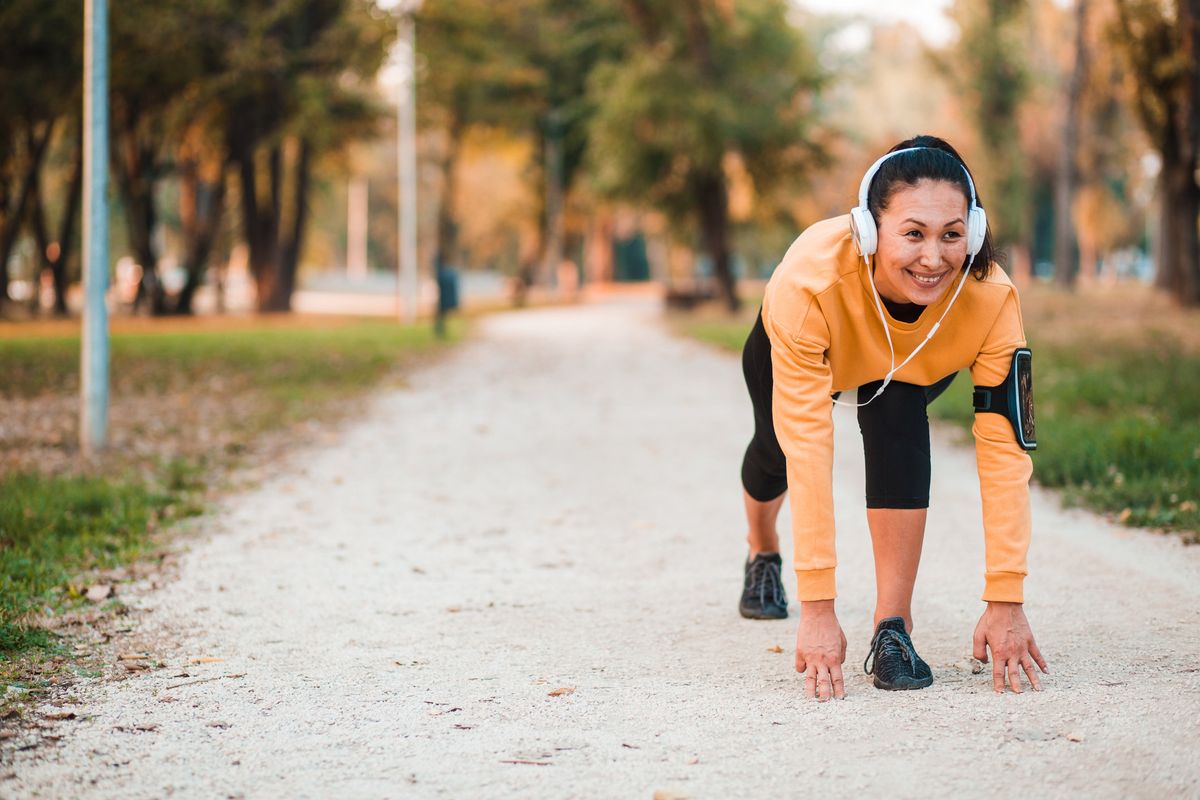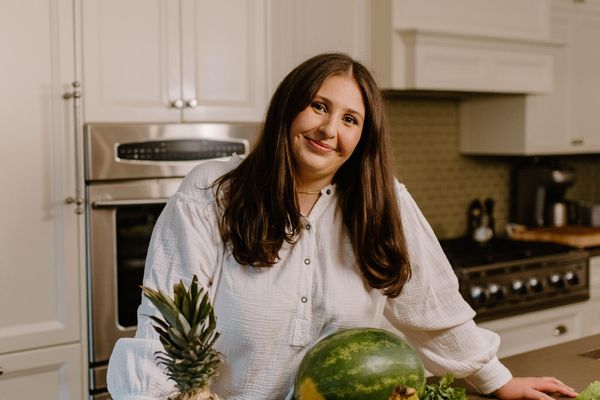Since COVID-19 entered our lives, we've all reacted differently. For instance, when I've felt overwhelmed by quarantining, I've turned to sugar — cookies, to be precise — as a coping mechanism.
For my best friend, Becky, when she feels anxiety over her finances and her job, those feelings lead to insomnia.
Becky and I are far from alone. Sales of pizza, hotdogs and other comfort foods have skyrocketed during the pandemic, and studies have long indicated that stress can lead to poor sleep. But now that fall is here, Becky and I want to refocus on healthy living.
For tips on how to create healthier habits, I reached out to Jessica Matthews, assistant professor and director of the Master of Kinesiology in Integrative Wellness program at Point Loma Nazarene University, and Emily A. Callahan, a registered dietician nutritionist, both of whom are members of HealthyWomen's Women's Health Advisory Council.
Worrying and relaxation
The reason Becky has trouble falling asleep is that she can’t turn her mind off.
“At the start of the pandemic, I was constantly thinking about how I was going to pay my rent or buy groceries. Now, I’m worried about my hours staying steady at work so I can continue to pay my bills,” Becky told me. “Falling asleep is hard and staying asleep is even harder.”
That’s not uncommon. A 2019 study found that ruminating thoughts and worrying are often the reason people can’t get a decent night’s sleep.
“So much of the distress that happens in our lives is around the narrative we tell ourselves,” Matthews explained. “How we then start to reframe that narrative is to have awareness around the thoughts that arise around events and situations. Once we have that awareness, we can start to challenge — and ultimately change — that unproductive thinking into more positive and realistic thoughts.”
One way to do that is through practicing meditation, keeping a journal or engaging in other activities that allow you to really work through your thoughts and emotions.
“This is where perspective is such a powerful tool,” Matthews said, adding that people should ask themselves, “‘Is that actually an accurate way of thinking? Is there another way to think about that event?’ We not only catch those thoughts, we check those thoughts.”
Building healthy sleeping and eating habits
Having a routine can lead to better sleep. Matthews suggests making appointments with yourself for activities such as exercising in order to help establish your sleep routine.
“It seems very simple, but it's actually a very powerful strategy,” Matthews said. “When it’s in your calendar, you’re not going to miss it.”
Try setting an alarm to kick off that routine, which could include meditation, a hot shower or yoga to relax. Consider setting aside your computer, phone or TV: The light emitted from such devices can keep you awake longer and impact your circadian rhythm.
When people are stressed, their adrenal glands emit the hormone cortisol, which can lead to food cravings, often for foods that are high in sugars and fats.
“That [release of cortisol] might cause people to crave those foods when they're stressed because the last time they ate those in a stressful situation they felt better in the moment,” Callahan said.
She recommends keeping a food diary or journal: Write down what you’ve eaten, how much you ate and how you were feeling when you ate it.
“When you look at that journal or diary, you can potentially see a pattern,” Callahan said. “That can help people recognize the triggers. Then, if they know those triggers, they can make a plan for how to respond to them.”
Those responses could include drinking a glass of water, waiting 15 minutes before eating, going for a walk or meditating. And make any changes slowly.
“If people perceive [taking small steps] as more doable than cutting things out cold turkey, it sets people up for success,” Callahan said.
Make healthier foods more accessible and unhealthy foods less accessible. Instead of leaving candy on a table, put it on the highest shelf of your pantry. Keep vegetables cut up in your refrigerator for an easy-access snack.
“You can say, OK I'm only going to buy one package of cookies or one carton of ice cream this week and once it's gone, it's gone,” Callahan said.
Limiting alcohol
Alcohol consumption has also increased during the pandemic.
“For most people, if [their drinking is] within the [CDC] guidelines, I wouldn't be that concerned, but if you start gradually going for more and more, you can be in more dangerous territory," Callahan said. “It can become a crutch and not something you want to have as a tendency."
It's important to understand why you're reaching for those glasses of wine and address those issues, similar to worrying thoughts before sleep, Matthews said.
Exercise and accountability partners
Exercise can help foster healthy eating and sleeping habits.
“When it comes to sleep, we know that engaging in physical activity helps to set the stage for a more restful sleep,” Matthews said.
You don’t have to do an intense workout to reap the benefits, either.
“You can do a 10 or 15 mintue bout of physical activity, and it’s still beneficial,” Callahan said. “Maybe you have your running shoes by the door and that’s going to give you a little nudge to take that walk.”
Consider asking a friend to be your accountability and encouragement partner. You can cook together over video chat or walk around your respective neighborhoods while on the phone.
Small steps
Starting with something you’re likely to be able to stick with is vital to getting back on track. “What's important with habits is figuring out what's realistic for where you are right now,” Matthews said. “One of the biggest things is we want to establish these small and specific action steps that enable us to experience success in enacting and sustaining those health behavior changes.”
For example, if you’re used to eating cookies every night before bed, it might not be sustainable to suddenly switch to only celery. But you can start by reducing the number of nights you eat cookies before bed and gradually do away with the sugar habit altogether. Or, if you haven’t exercised in months, starting with some light weight training is smarter than trying to bench press 100 pounds.
“The small things should be celebrated, and they can have a snowball effect as they accumulate,” Callahan said.
Give yourself credit for the baby steps, and eventually you can work up to loftier goals.







